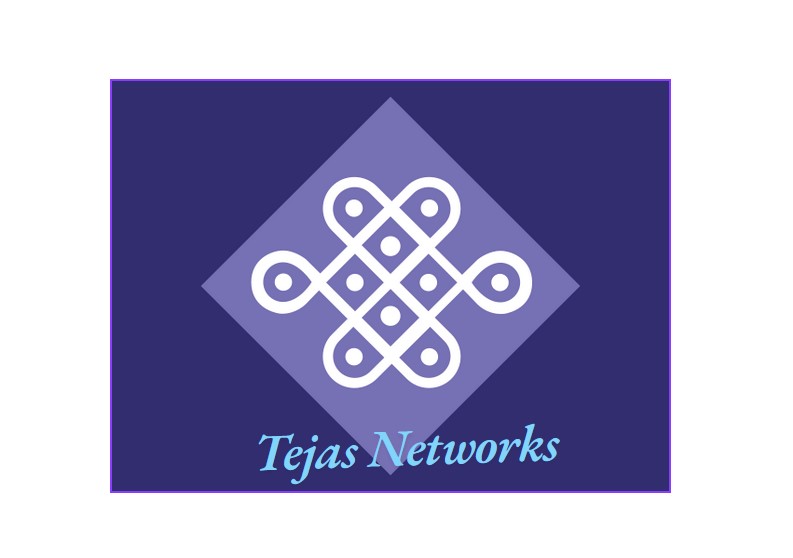Tejas Networks is an Indian company that designs, develops, and sells high-performance, cost-competitive telecommunications equipment, primarily in the optical and data networking space. The company has become one of India’s prominent players in the field of telecommunications infrastructure. Below are the full details about Tejas Networks:

1. Overview of Tejas Networks
- Founded: 2000
- Headquarters: Bengaluru, India
- Founders: Sanjay Nayak (CEO & MD), Kumar N. Sivarajan (CTO), and Arnob Roy
- Industry: Telecommunications, Networking Equipment
- Public Listing: Tejas Networks is listed on both the Bombay Stock Exchange (BSE) and the National Stock Exchange of India (NSE).
- Ticker Symbol: BSE: 540595, NSE: TEJASNET
- Parent Company: Tata Sons (Tata Group, through Tata Consultancy Services, holds a controlling stake in Tejas Networks after an acquisition in 2021).
2. Products and Services
Tejas Networks provides a range of products in the telecommunications domain, with a focus on optical networking and data transmission equipment:
- Optical Transport Solutions: This includes DWDM (Dense Wavelength Division Multiplexing), SONET/SDH (Synchronous Optical Network/Synchronous Digital Hierarchy) products for high-speed data transmission over fiber optic cables.
- Packet Switching Solutions: Carrier Ethernet, MPLS-TP (Multiprotocol Label Switching-Transport Profile) routers, and broadband aggregation products for scalable networks.
- Wireless Backhaul Products: These products help wireless service providers carry data between cell towers and central networks using fiber optics.
- Network Management Systems: Tejas provides comprehensive software systems that allow telecom operators to manage, monitor, and optimize their networks.
Tejas Networks focuses on meeting the demands of service providers, internet service providers (ISPs), utility companies, government agencies, and defense organizations.
3. Key Markets
Tejas Networks operates in various geographic markets:
- India: Tejas is a market leader in India and supplies network infrastructure equipment to major Indian telecom operators like Bharti Airtel, Reliance Jio, and BSNL (Bharat Sanchar Nigam Limited).
- Global Markets: Tejas has a significant presence in over 75 countries, with strong focus markets in South East Asia, Africa, the Middle East, and Latin America.
The company’s global expansion strategy focuses on emerging markets with growing telecommunications infrastructure demands.
4. Business Model
Tejas Networks follows a hardware-software integrated model that provides telecommunications operators with highly scalable and software-defined hardware platforms. The business model revolves around:
- Customization: Providing customizable solutions that can cater to specific customer needs.
- Software-Defined Networking (SDN): Offering products that are flexible, programmable, and capable of evolving through software upgrades, which helps lower the total cost of ownership for service providers.
- Product Licensing: Licensing intellectual property and software to other equipment manufacturers or network operators.
5. Acquisition by Tata Sons
In 2021, Tata Sons, through Tata Consultancy Services (TCS), acquired a 43.35% stake in Tejas Networks. The acquisition marked a strategic move by Tata Group to strengthen its position in the telecom and network infrastructure market. This acquisition aligned with Tata’s broader ambitions to participate in the government’s Atmanirbhar Bharat (Self-Reliant India) initiative, as well as the rollout of 5G networks in India.
6. Financial Performance
- Revenue: Tejas Networks reported total revenues of ₹743 crore for FY 2023.
- Profitability: The company posted net profits of ₹65.8 crore in the same fiscal year. This marked a significant improvement, as the company has been working to enhance its profitability through both domestic and international sales growth.
- Order Book: Tejas has had a healthy order book due to increasing demand for 5G-related products, optical fiber networking equipment, and government-backed connectivity projects.
7. Key Partnerships
Tejas Networks has partnered with numerous global and domestic telecom operators, government bodies, and enterprises. Some notable collaborations include:
- BSNL: Tejas provided critical optical transmission products for the state-run telecom provider’s network expansion projects.
- ISRO: Tejas has provided technology and equipment to the Indian Space Research Organization (ISRO) for secure and efficient communication networks.
- Government of India Projects: Tejas Networks plays a significant role in government-backed initiatives like BharatNet, which aims to expand broadband connectivity in rural areas, and Smart Cities projects.
8. Technological Innovations
Tejas Networks is known for its focus on research and development. Key innovations include:
- 5G Readiness: Tejas is actively involved in developing technology for the 5G rollout in India. Its products are designed to meet the demands of high-speed data transmission for 5G networks.
- Optical Networking for 4G & 5G Backhaul: The company offers solutions that support the backhaul needs of both 4G and 5G networks, ensuring that service providers can transition smoothly between technologies.
- Software-Defined Hardware: Tejas focuses on creating programmable, software-defined networking (SDN) hardware that can be remotely updated and scaled, reducing costs for operators.
9. Competitors
Tejas Networks faces competition from both domestic and international players. Major competitors include:
- Huawei (China)
- ZTE (China)
- Nokia (Finland)
- Cisco Systems (USA)
- Sterlite Technologies (India)
Tejas differentiates itself through its deep customization capabilities, software-driven approach, and cost-effectiveness.
10. Future Outlook
Tejas Networks is expected to benefit from India’s increasing investments in 5G, smart cities, and rural broadband projects. Additionally, as telecommunications infrastructure expands across the globe, Tejas is well-positioned to capture international growth opportunities, especially in emerging markets. The company’s strategic relationship with Tata Group further strengthens its prospects, as Tata’s focus on 5G, digital infrastructure, and technology will likely create synergies in product development and market expansion.
